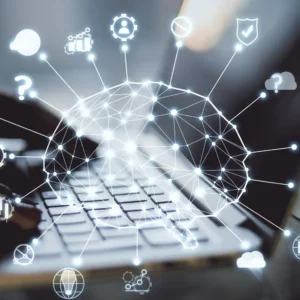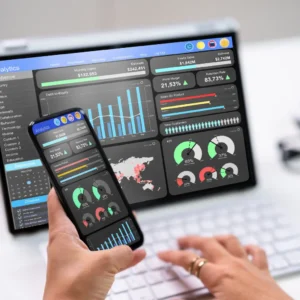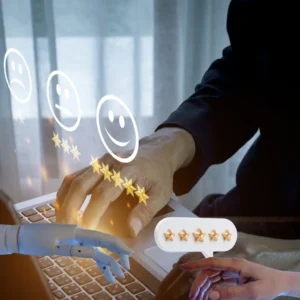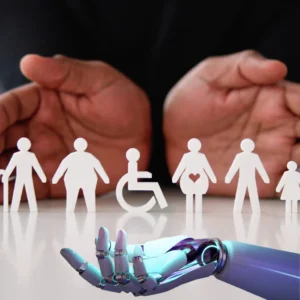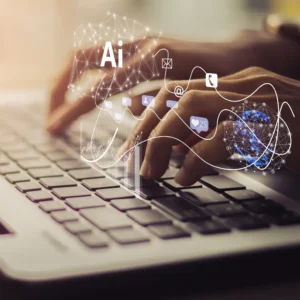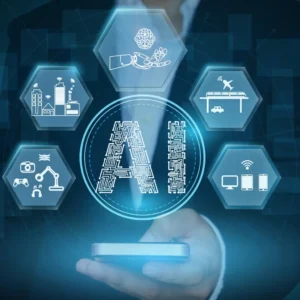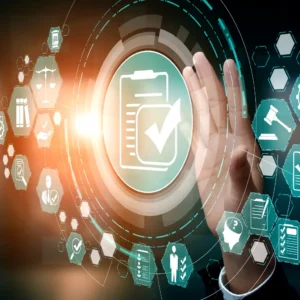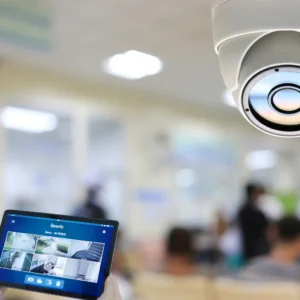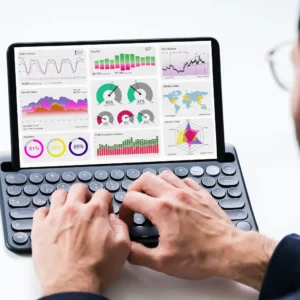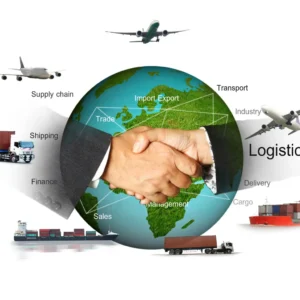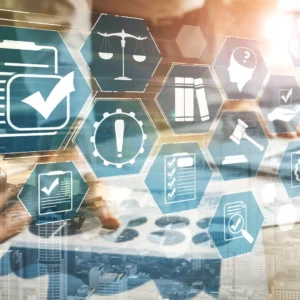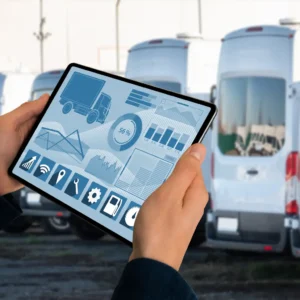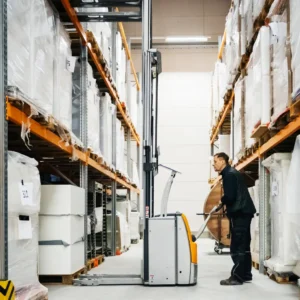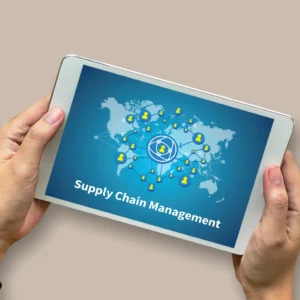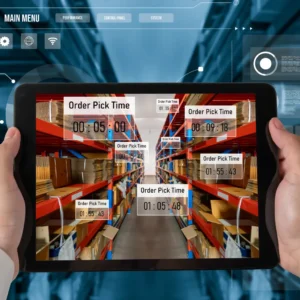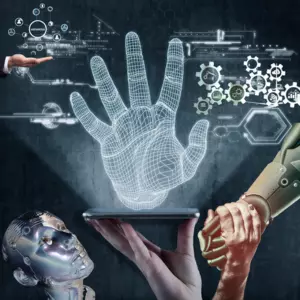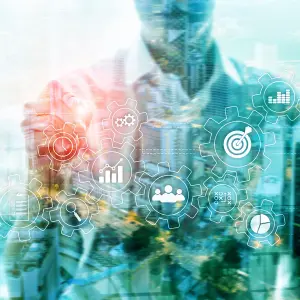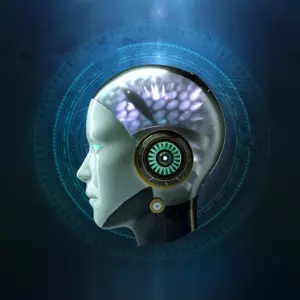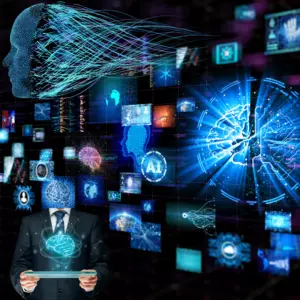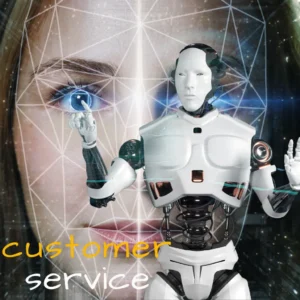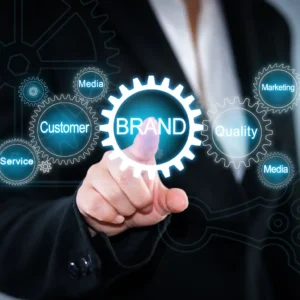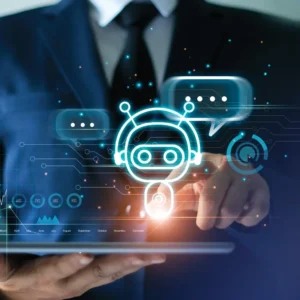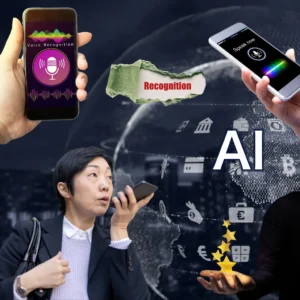
Revolutionizing Hospitality
Unleashing the Power of AI for Seamless Collaboration and Communication
Artificial Intelligence (AI) has become a force in the travel and hospitality industry, especially in Collaboration and Communication. This discussion delves into the strategic development of AI tools for Collaboration and Communication in the Travel and Hospitality domain, catering to organizations of varying sizes.
These AI tools aim to revolutionize guest experiences and streamline operational workflows, from enhancing language translation services to crafting immersive virtual collaboration spaces.
This exploration encompasses the business knowledge, software proficiency, and hardware considerations essential for successfully deploying these tools, emphasizing their pivotal role in elevating guest satisfaction, optimizing resource utilization, and establishing a new paradigm of technological advancement in the dynamic hospitality sector.
Table of Contents

Arindam Roy
An Automation Consultant with 25+ years of IT Experience
5 AI tool ideas for the Collaboration and Communication
Language Translation for Multilingual Support:
- AI Domain: Natural Language Processing (NLP)
- Benefit: Enhance communication with international guests by providing real-time language translation services.
- Features:
- Real-time translation in multiple languages during conversations.
- Integration with various communication channels such as chat, voice, and written text.
- Customization for industry-specific terminology.
Collaborative Trip Planning Platforms:
- AI Domain: Machine Learning
- Benefit: Facilitate group trip planning by using AI to suggest activities, accommodations, and itineraries that suit the preferences of all members.
- Features:
- Machine learning algorithms to analyze preferences and past trip data.
- Personalized recommendations for each group member.
- Integration with booking platforms and real-time updates on availability.
AI-driven Meeting Room Scheduling:
- AI Domain: Machine Learning
- Benefit: Optimize meeting room usage by implementing AI-driven scheduling that considers past usage patterns and availability.
- Features:
- Predictive analytics for optimal room allocation based on historical data.
- Automated scheduling with conflict resolution.
- Integration with calendar systems for seamless planning.
Smart Notifications and Alerts:
- AI Domain: Machine Learning
- Benefit: Improve communication with guests and staff by sending personalized and timely notifications based on preferences and context.
- Features:
- Personalized notifications for guests about upcoming activities, promotions, or events.
- Context-aware alerts for staff regarding room status, guest requests, and emergencies.
- Machine learning for continuous improvement in notification relevance.
Virtual Collaboration Spaces:
- AI Domain: Virtual Reality
- Benefit: Facilitate remote collaboration by creating AI-powered virtual spaces for team meetings, conferences, and events.
- Features:
- AI-driven avatars for realistic virtual interactions.
- Integration with popular video conferencing tools.
- Customizable virtual environments to suit different meeting types.
Incorporating these AI tools into the travel and hospitality industry can significantly enhance collaboration and communication, improve guest experiences, and streamline internal operations. Using NLP, machine learning, and virtual reality technologies ensures a comprehensive and innovative approach to addressing the industry’s unique challenges.
AI Tools for Language Translation for Multilingual Support
Business Knowledge Requirements:
- Hospitality Industry Understanding:
- In-depth knowledge of the travel and hospitality sector, including customer service expectations and communication challenges with international guests.
- Awareness of cultural nuances and language preferences in different regions.
- Guest Communication Analysis:
- Proficiency in analyzing guest communication patterns to identify common language-related issues.
- Understanding the impact of effective multilingual communication on guest satisfaction.
- Regulatory Compliance:
- Familiarity with data protection regulations and legal requirements related to cross-border communication.
- Knowledge of industry-specific standards for language accessibility and communication.
Software Knowledge Requirements:
- Natural Language Processing (NLP):
- Expertise in NLP algorithms for real-time language translation.
- Development of language models capable of context-aware translations in various languages.
- Communication Platforms Integration:
- Integration with diverse communication channels such as chat, voice, and written text.
- Seamless integration with existing communication systems used in the hospitality industry.
- User Experience Design:
- Understanding of user experience principles to create an intuitive and user-friendly interface for both guests and staff.
- Customization options for different user preferences and needs.
Hardware Requirements:
- Processing Power:
- Adequate computational resources for real-time language translation.
- Capability to handle multiple translation requests simultaneously, especially during peak communication times.
Training Required:
- NLP Specialists:
- Training in developing and fine-tuning NLP models for accurate and context-aware language translation.
- Continuous learning to keep up with advancements in NLP technology.
- Staff Training:
- Training for hospitality staff on utilizing the language-translation tool for effective communication.
- Familiarization with the tool’s interface and integration with existing communication systems.
Integrations Necessary:
- Guest Management Systems:
- Integration with guest management systems to access guest information and communication preferences.
- Real-time updates to guest profiles based on language preferences.
- Communication Platforms:
- Integration with popular communication platforms used in the travel and hospitality industry.
- The seamless communication flow between the language-translation tool and existing communication channels.
Comparative Tools in the Market:
- Google Translate:
- Widely used for general translation purposes.
- Lacks industry-specific customization for hospitality communication.
- Microsoft Translator:
- Provides real-time translation services.
- May not be tailored specifically for the hospitality industry.
Recommendation: Buy and Customize
Considering the time and resource efficiencies, it is recommended to purchase an existing language translation tool with a strong foundation in NLP and then customize it to add to the specific needs of the travel and hospitality industry. This approach combines the advantages of proven technology with customization for industry requirements.
Cost/Benefits Analysis:
- Costs:
- Licensing or Subscription Fees: Costs associated with purchasing or subscribing to a reputable language translation tool.
- Customization Costs: Expenses for customizing the tool to align with the unique needs of the travel and hospitality sector.
- Training Expenses: Costs for training hospitality staff on using and maximizing the customized tool.
- Benefits:
- Time Efficiency:
- Rapid deployment of a sophisticated language translation solution.
- Leveraging proven algorithms and features from an established tool.
- Customization:
- Alignment with the unique demands of the travel and hospitality industry.
- Flexibility to adapt and upgrade based on evolving communication standards.
- Improved Guest Experience:
- Enhanced guest satisfaction and loyalty through effective multilingual communication.
- Positive impact on the overall reputation and brand image.
- Time Efficiency:
Buying and customizing a tool strikes a balance between leveraging existing technologies and tailoring the solution to meet the specific needs of AI tools for Collaboration and Communication in the Travel and Hospitality Domain, ensuring a cost-effective and efficient implementation.
AI Tools for Collaborative Trip Planning Platforms
Business Knowledge Requirements:
- Hospitality Industry Understanding:
- In-depth travel and hospitality sector knowledge, including diverse customer preferences, accommodation types, and destination options.
- Understanding the significance of collaborative trip planning for group satisfaction.
- Customer Behavior Analysis:
- Proficiency in analyzing customer behaviour related to group travel.
- Awareness of common challenges and preferences in group trip planning.
- Local Destination Knowledge:
- Familiarity with various travel destinations, attractions, and activities.
- Understanding local regulations and travel constraints that may impact trip planning.
Software Knowledge Requirements:
- Machine Learning Algorithms:
- Expertise in developing machine learning models for personalized group trip recommendations.
- Algorithms for analyzing historical data and predicting group preferences.
- User Experience Design:
- Understanding of user experience principles to design an intuitive platform for group collaboration.
- Customization options for diverse user preferences within a group.
- Database Management:
- Knowledge of database systems to efficiently store and retrieve vast amounts of trip-related data.
- Structuring data to support quick and dynamic itinerary adjustments.
Hardware Requirements:
- Processing Power:
- Adequate computational resources for running machine learning algorithms.
- Ability to handle simultaneous requests for multiple group trips.
- Data Storage:
- Sufficient storage capacity for storing and retrieving trip-related data.
- Fast data retrieval capabilities to provide real-time suggestions during collaborative planning.
Training Required:
- Data Scientists:
- Training in developing and fine-tuning machine learning models for group trip planning.
- Understanding ethical considerations and biases in AI-driven recommendations.
- Customer Support Teams:
- Training on using the collaborative trip planning platform to assist customers.
- Handling customer queries related to suggested activities, accommodations, and itineraries.
Integrations Necessary:
- Booking Platforms:
- Integration with booking platforms for seamless reservation of suggested accommodations and activities.
- Real-time updates on availability and pricing.
- Mapping and Navigation Services:
- Integration with mapping and navigation services for accurate representation of trip itineraries.
- Real-time adjustments based on local conditions.
Comparative Tools in the Market:
- TripHobo:
- Offers trip planning tools with user-generated content.
- May need more advanced machine learning capabilities for personalized group suggestions.
- Sygic Travel:
- Provides trip planning with maps and navigation.
- Focus on something other than machine learning for group collaboration.
Recommendation: Build from Scratch
Building a collaborative trip planning platform from scratch is recommended to ensure customization according to the specific needs of AI tools for Collaboration and Communication in the Travel and Hospitality Domain. This approach allows for a tailored solution that can adapt to evolving industry requirements.
Cost/Benefits Analysis:
- Costs:
- Development Costs:
- Investment in machine learning experts and software developers for custom development.
- Potential higher initial costs compared to off-the-shelf solutions.
- Training Expenses:
- Costs associated with training staff on using and maximizing the customized platform.
- Development Costs:
- Benefits:
- Industry-Specific Customization:
- Tailored features addressing the unique collaborative planning needs of the travel and hospitality industry.
- Flexibility to adapt and upgrade based on evolving group travel trends.
- Improved Customer Satisfaction:
- Enhanced customer satisfaction through personalized and group-centric trip suggestions.
- Positive impact on customer loyalty and word-of-mouth referrals.
- Scalability:
- Flexibility to scale the platform and incorporate new features as the user base grows.
- Potential long-term cost savings by avoiding licensing fees associated with third-party solutions.
- Industry-Specific Customization:
Building from scratch ensures a highly specialized and adaptable tool, justifying the initial investment in AI tools for Collaboration and Communication in the Travel and Hospitality Domain.
AI Tools for AI-driven Meeting Room Scheduling
Business Knowledge Requirements:
- Hospitality Industry Understanding:
- In-depth knowledge of the travel and hospitality sector, including the types of meeting spaces, event planning, and the importance of efficient room scheduling.
- Awareness of the impact of optimized meeting room usage on guest satisfaction and operational efficiency.
- Meeting Behavior Analysis:
- Proficiency in analyzing meeting behaviour patterns and understanding the factors influencing room preferences.
- Recognition of typical challenges faced in meeting room scheduling within the hospitality industry.
- Operational Logistics:
- Familiarity with the operational logistics of managing meeting spaces, including turnaround times, cleaning processes, and staff coordination.
- Understanding the dynamics of various events and their impact on room scheduling.
Software Knowledge Requirements:
- Machine Learning Algorithms:
- Expertise in developing machine learning models for predicting meeting room usage patterns.
- Algorithms for optimizing room scheduling based on historical data and real-time demand.
- Data Analytics Tools:
- Utilization of data analytics tools to process and analyze large datasets, including meeting room usage and availability.
- Implementation of data visualization techniques for interpreting insights.
- User Interface (UI) Design:
- Understanding user interface design principles to create an intuitive scheduling platform for guests and staff.
- Customization options for different meeting types and preferences.
Hardware Requirements:
- Processing Power:
- Adequate computational resources for running machine learning algorithms for scheduling optimization.
- Capability to handle simultaneous scheduling requests for multiple meeting rooms.
Training Required:
- Data Scientists:
- Training in developing and fine-tuning machine learning models for predicting meeting room usage.
- Understanding ethical considerations and biases in AI-driven scheduling.
- Hospitality Staff:
- Training on utilizing the AI-driven meeting room scheduling platform for efficient room management.
- Familiarization with the platform’s interface for scheduling and monitoring meeting rooms.
Integrations Necessary:
- Reservation Systems:
- Integration with reservation systems to access event schedules and meeting room availability.
- Real-time updates to room schedules based on reservation modifications.
- Staff Communication Systems:
- Coordination with staff communication systems for efficient room turnover and cleaning processes.
- Integration with event management systems for seamless coordination during larger gatherings.
Comparative Tools in the Market:
- Robin:
- Provides meeting room scheduling solutions with a focus on optimizing office spaces.
- May require customization for specific hospitality industry needs.
- Condeco:
- Offers meeting room booking and management tools.
- May lack advanced machine learning capabilities for predictive scheduling.
Recommendation: Buy and Customize
Considering the complexity and existing tools available in the market, a recommendation is to purchase an existing meeting room scheduling tool and customize it to meet the specific needs of AI tools for Collaboration and Communication in the Travel and Hospitality Domain. This approach combines the advantages of proven technology with customization for industry requirements.
Cost/Benefits Analysis:
- Costs:
- Licensing or Subscription Fees: Costs associated with purchasing or subscribing to the chosen meeting room scheduling tool.
- Customization Costs: Expenses for customizing the tool to align with the unique needs of the travel and hospitality sector.
- Training Expenses: Costs for training hospitality staff on using and maximizing the customized tool.
- Benefits:
- Time Efficiency:
- Rapid deployment of a sophisticated meeting room scheduling solution.
- Leveraging proven algorithms and features from an established tool.
- Customization:
- Alignment with the unique demands of the travel and hospitality industry.
- Flexibility to adapt and upgrade based on evolving scheduling standards.
- Improved Operational Efficiency:
- Enhanced optimization of meeting room usage, leading to improved operational efficiency.
- Positive impact on overall guest satisfaction and experience.
- Time Efficiency:
Buying and customizing a tool strikes a balance between leveraging existing technologies and tailoring the solution to meet the specific needs of AI tools for Collaboration and Communication in the Travel and Hospitality Domain, ensuring a cost-effective and efficient implementation.
AI Tools for Smart Notifications and Alerts
Business Knowledge Requirements:
- Hospitality Industry Understanding:
- In-depth travel and hospitality sector knowledge, including guest communication expectations and operational dynamics.
- Awareness of the impact of effective communication on guest satisfaction and loyalty.
- Guest Behavior Analysis:
- Proficiency in analyzing guest behaviour patterns to understand preferences and communication preferences.
- Recognition of common challenges and opportunities for personalized communication in the hospitality industry.
- Regulatory Compliance:
- Familiarity with data protection regulations and legal requirements related to guest communication.
- Knowledge of industry-specific standards for communication and notification preferences.
Software Knowledge Requirements:
- Machine Learning Algorithms:
- Expertise in developing machine learning models for predicting guest preferences and generating personalized notifications.
- Algorithms for analyzing historical data and real-time contextual information.
- Data Analytics Tools:
- Utilization of data analytics tools to process and analyze large datasets, including guest preferences and behaviour.
- Implementation of data visualization techniques for interpreting insights.
- User Experience Design:
- Expertise in user experience design principles to create an intuitive interface for configuring and managing notifications.
- Customization options for different guest segments and preferences.
Hardware Requirements:
- Processing Power:
- Adequate computational resources for running machine learning algorithms for personalized notification generation.
- Capability to handle simultaneous notification requests for multiple guests.
Training Required:
- Data Scientists:
- Training in developing and fine-tuning machine learning models for personalized notification predictions.
- Understanding ethical considerations and biases in AI-driven communication.
- Hospitality Staff:
- Training on utilizing the Smart Notifications and Alerts platform for efficient communication.
- Familiarization with the platform’s interface for configuring and managing personalized notifications.
Integrations Necessary:
- Guest Management Systems:
- Integration with guest management systems to access guest information, preferences, and historical data.
- Real-time updates to guest profiles based on interactions and feedback.
- Communication Platforms:
- Integration with various communication channels such as messaging apps, email, and in-app notifications.
- Seamless communication flow between the notification platform and existing guest communication channels.
Comparative Tools in the Market:
- Criton:
- Offers guest engagement and communication tools for hotels.
- May not specialize in advanced machine learning for personalized notifications.
- ALICE:
- Provides a hotel operations platform with guest communication features.
- May need a stronger emphasis on personalized and context-aware notifications.
Recommendation: Build from Scratch
Building a Smart Notifications and Alerts platform from scratch is recommended to ensure customization according to the specific needs of AI tools for Collaboration and Communication in the Travel and Hospitality Domain. This approach allows for a tailored solution that can adapt to evolving industry requirements.
Cost/Benefits Analysis:
- Costs:
- Development Costs:
- Investment in machine learning experts and software developers for custom development.
- Potential higher initial costs compared to off-the-shelf solutions.
- Training Expenses: Costs associated with training staff on using and maximizing the customized platform.
- Development Costs:
- Benefits:
- Industry-Specific Customization:
- Tailored features addressing the unique communication needs of the travel and hospitality industry.
- Flexibility to adapt and upgrade based on evolving communication standards.
- Improved Guest Satisfaction:
- Enhanced guest satisfaction through personalized and context-aware notifications.
- Positive impact on overall guest experience and loyalty.
- Scalability:
- Flexibility to scale the platform and incorporate new features as communication requirements evolve.
- Potential long-term cost savings by avoiding licensing fees associated with third-party solutions.
- Industry-Specific Customization:
Building from scratch ensures a highly specialized and adaptable tool, justifying the initial investment in AI tools for Collaboration and Communication in the Travel and Hospitality Domain.
AI Tools for Virtual Collaboration Spaces
Business Knowledge Requirements:
- Hospitality Industry Understanding:
- In-depth knowledge of the travel and hospitality sector, including the dynamics of team collaboration, conferences, and events.
- Awareness of the specific requirements and challenges in facilitating remote collaboration for the industry.
- Event Management Expertise:
- Proficiency in event planning and management to understand the diverse needs of virtual conferences and events.
- Understanding the impact of immersive experiences on the success of virtual hospitality events.
- Technology Trends:
- Stay informed about emerging technologies and virtual reality (VR) trends for collaboration.
- Knowledge of industry-specific requirements for creating engaging and immersive virtual collaboration spaces.
Software Knowledge Requirements:
- Virtual Reality Development:
- Expertise in VR development tools and platforms to create immersive virtual collaboration spaces.
- Programming skills in languages like C# or Python for VR application development.
- Artificial Intelligence Integration:
- Integration of AI algorithms to enhance virtual collaboration experiences, such as AI-driven avatars and context-aware interactions.
- Utilization of NLP for natural and intelligent conversations within the virtual space.
- User Interface (UI) and User Experience (UX) Design:
- Understanding UI and UX design principles for creating user-friendly and immersive virtual collaboration interfaces.
- Customization options for branding and industry-specific themes.
Hardware Requirements:
- VR Headsets and Devices:
- Compatibility with a range of VR headsets and devices for a broad user base.
- Optimization for both high-end and more affordable VR hardware.
- High-Performance Servers:
- Robust server infrastructure for hosting virtual collaboration spaces with multiple participants.
- Low-latency communication to ensure real-time interactions in the virtual environment.
Training Required:
- VR Developers:
- Training in VR development tools and platforms.
- Continuous learning to stay updated on new VR technologies.
- Hospitality Staff:
- Training on using the Virtual Collaboration Spaces platform for hosting and participating in virtual events.
- Familiarization with the virtual environment and interaction tools.
Integrations Necessary:
- Communication Platforms:
- Integration with popular communication tools for seamless audio and video interactions within the virtual space.
- Compatibility with messaging apps for real-time communication.
- Event Management Systems:
- Integration with event management systems for seamless planning, scheduling, and tracking of virtual events.
- Real-time updates on participant registrations and engagement metrics.
Comparative Tools in the Market:
- VirBELA:
- Provides virtual collaboration spaces for team meetings and events.
- May require customization for hospitality-specific requirements.
- AltspaceVR / Microsoft Mesh:
- Offers social VR spaces for conferences and events.
- May lack advanced AI-driven features for personalized interactions.
Recommendation: Build from Scratch
Building Virtual Collaboration Spaces from scratch is recommended to ensure customization according to the specific needs of AI tools for Collaboration and Communication in the Travel and Hospitality Domain. This approach allows for a tailored solution that aligns with industry-specific requirements.
Cost/Benefits Analysis:
- Costs:
- Development Costs:
- Investment in VR developers, AI specialists, and software developers for custom development.
- Potential higher initial costs compared to off-the-shelf solutions.
- Hardware Expenses: Costs associated with ensuring compatibility with various VR headsets and devices.
- Training Expenses: Costs for training staff on using and maximizing the customized platform.
- Development Costs:
- Benefits:
- Industry-Specific Customization:
- Tailored features addressing the unique collaboration needs of the travel and hospitality industry.
- Flexibility to adapt and upgrade based on evolving collaboration trends.
- Enhanced Virtual Experiences:
- Improved engagement and satisfaction through immersive and AI-enhanced virtual collaboration spaces.
- Positive impact on the brand image and industry competitiveness.
- Scalability:
- Flexibility to scale the platform and incorporate new features as collaboration requirements evolve.
- Potential long-term cost savings by avoiding licensing fees associated with third-party solutions.
- Industry-Specific Customization:
Building from scratch ensures a highly specialized and adaptable tool, justifying the initial investment in the context of AI tools for Collaboration and Communication in the Travel and Hospitality Domain.
Conclusion on AI tools for Collaboration and Communication in the Travel and hospitality domain
In conclusion, developing and implementing AI tools for Collaboration and Communication in the Travel and Hospitality Domain holds immense potential for transforming the industry. The diverse range of tools, from personalized accessibility profiles to virtual collaboration spaces, exemplifies the adaptability of AI to address specific challenges faced by organizations in this sector. Integrating machine learning, natural language processing, and virtual reality technologies offers unprecedented opportunities to enhance guest experiences, optimize operations, and foster efficient communication.
Understanding the intricate demands of the hospitality industry, a strategic blend of business acumen and technical expertise is crucial for successfully creating these AI tools. Whether customizing existing solutions or building from scratch, a tailored approach ensures that the tools align seamlessly with the unique requirements of the travel and hospitality sector. The comprehensive business knowledge, software proficiency, and hardware considerations outlined for each tool emphasize the multidimensional nature of AI implementation in this domain.
As the market already witnesses comparative tools, the recommendation to build, buy, or customize depends on industry-specific customization, time efficiency, and long-term scalability. Despite the associated costs, the benefits derived from these AI tools, including improved guest satisfaction, operational efficiency, and industry competitiveness, make them indispensable assets for forward-thinking organizations in the Travel and Hospitality sector. Embracing AI-driven collaboration and communication tools positions businesses at the forefront of technological innovation and sets a new standard for elevated and personalized guest experiences in the dynamic landscape of the travel and hospitality industry.
Related Articles
- AI tools for Emerging Technologies in Travel and Hospitality
- AI tools for Data Analytics and Insights in Hospitality
- AI Tools for Customer Experience and Engagement in Hospitality
- AI tools for Accessibility and Inclusivity in Hospitality
- AI tools for Marketing and Sales in Hospitality and Travel
- AI Tools for Operations and Efficiency in Hospitality
- AI Tools for Regulatory Compliance and Risk Management
- AI Tools for Safety and Security in Hospitality and Travel
- AI Tools for Sustainability and Environmental Impact
- AI tools in the Travel and Hospitality domain

